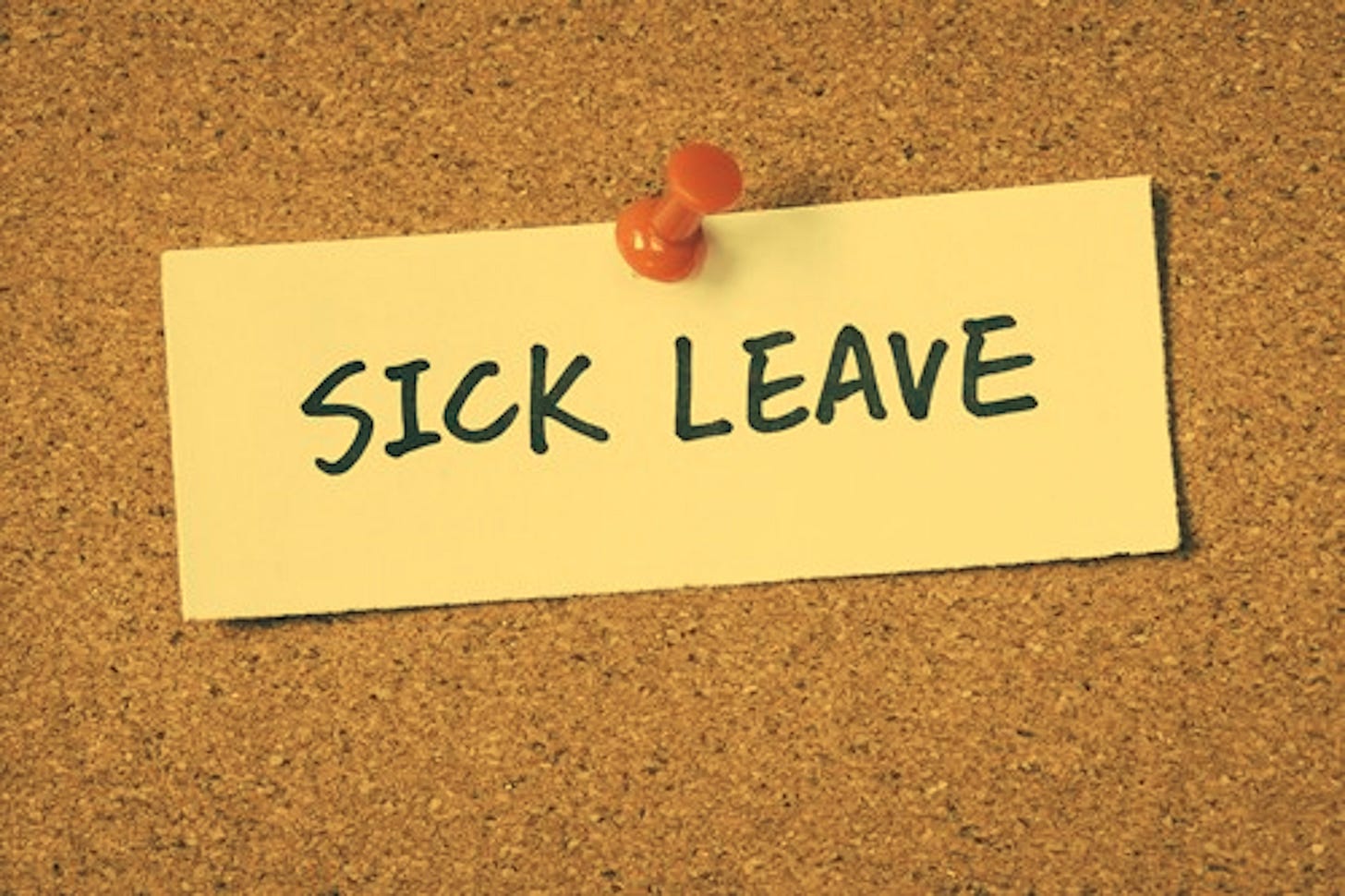Sick Leave – why has it increased over 55% in 2022 and 2023 since Covid-19 and why aren’t Employers supporting staff more?
Sick Leave and why has it got worse since Covid-19
I was lucky over the summer of 2020 to avoid getting COVID-19 after my employers at the time (HMCTS) simply sent me home and quickly arranged for me to work from home.
My now ex-lodger, John who sadly passed away at the start of 2024 was not so lucky. He was a cleaner at Asda and was expected to come in sick as normal, and risk his life (He was Diabetic like I was) and if he went down ill would only get statutory sick pay.
Since leaving the HMCT at the end of 2022, the amount of jobs I have seen that only pay statutory sick has increased more and more. A report I saw on Yahoo News has stated this has forced more and more people into debut highlighted by “Sick leave rates in the UK have increased by 55% since 2019. Last year, a survey of employers by the Chartered Institute of Personnel and Development (CIPD) revealed that British workers took the most sick leave in more than a decade between 2022 and 2023."
At the HMCTS over the years, what they would pay you was reduced more and more over time until it got to the stage where if you were off sick for more than 2 weeks in a year (or three separate occasions) you would get a formal warning, which I know I would have made life very hard for them if they had tried that with considering I am Diabetic.
One might expect that the COVID-19 pandemic would have made employers more considerate of their staff's health needs. However, research indicates otherwise. Many working parents, in particular, have had to take sick leave to care for their children. The charity Pregnant Then Screwed and Women in Data reported a 30% increase in parents incurring debt to afford childcare over the past year.
A friend of mine who I won’t name started work at a Housing Association at the start of 2024 (again nameless) faced severe repercussions for taking sick leave to care for her ill twin daughters twice over a few weeks. Despite providing doctors' notes, her employer simply dismissed her at the end of her probation period, citing excessive sick leave and not believing her reasons.
These examples highlight a deeper issue within our political and economic systems. While some employees may exploit sick leave policies, the majority suffer from stringent and unsupportive employer practices. A more compassionate approach could foster a happier and more productive workforce.
In conclusion, as sick leave rates continue to rise, employers must reassess their policies and offer better support to their employees. A workforce treated with empathy and respect is more likely to be loyal and motivated, ultimately benefiting both the employees and the organisation.


